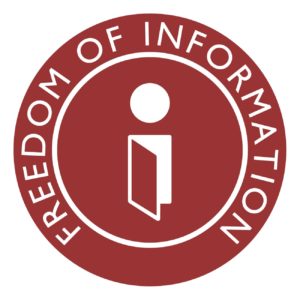 By Christian K. Mullett/firm of Cohl, Stoker & Toskey, P.C.
By Christian K. Mullett/firm of Cohl, Stoker & Toskey, P.C.
This article originally appeared in the April 2020 edition of Michigan Counties.
Does the Freedom of Information Act, MCL 15.231, et seq. (“FOIA”), apply to public officials’ use of non-governmental email accounts?
In FOIA, it is the stated policy that all persons are entitled to full and complete information regarding the affairs of government and the official acts of those who represent them as public officials. FOIA’s specific provisions require full disclosure of public records in the possession of a public body. However, these bright-line principles may be blurred when the public official uses a non-governmental email account to conduct government business.
FOIA subjects all “public records” to possible disclosure unless specifically exempted by statute. A “public record” is a writing that is prepared, owned, used, in the possession of, or retained by a public body in the performance of an official function, from the time it is created. Under this broad definition, emails, text messages, social media posts, and even voice mails would be subject to disclosure under FOIA if made in the furtherance of government business. In Competitive Enterprise Institute v. Office of Science and Technology Police 827 F.3d 145 (D.C. Cir. 2016), the U.S. Court of Appeals for the District of Columbia interpreted this very issue under the federal FOIA statute, wherein it opined:
[A]n agency always acts through its employees and officials. If one of them possesses what would otherwise be agency records, the records do not lose their agency character just because the official who possesses them takes them out the door or because he is the head of the agency.
The Court further commented:
If a department head can deprive the citizens of their right to know what his department is up to by the simple expedient of maintaining his department emails on an account in another domain, that purpose is hardly served … It would make as much sense to say that the department head could deprive requesters of hard-copy documents by leaving them in a file at his daughter’s house and them claiming they are under her control.
Governmental communications on a private device or personal account should be retained by the government official if they constitute public records. When individual public employees act in their official capacity, they are transacting business of the public body.
However, in practice, the access to certain emails under FOIA is particularly daunting to municipalities when these communications are saved on personal devices and not under the governmental body’s possession or control.
The fact that a personal email account has been used to send or receive public records does not necessarily transform all communications sent or received on that account into public records that would be subject to FOIA. Similarly, social media communications should be retained by the public entity in the same manner as emails if they concern the function of government. This may be problematic in that certain social media platforms automatically delete content.
While the FOIA law clearly favors disclosure, the Michigan Court of Appeals recently determined in Bisio v. The City of the Village of Clarkston (COA Docket 335422, July 3, 2018, lv granted) that if documents are held by agents of a public body such as a city attorney, the agent is not considered a public body that can be compelled under FOIA to release documents. The Court opined that the statute was clear, in that the definition of “public body” provided in MCL 15.232(d)(iii) does not include officers or employees acting on behalf of cities, townships and villages. In contrast, MCL 15.232(d)(i), which defines a “public body” relevant to the executive branch of government, does include officers and employees acting on behalf of the public body.
The Bisio case is now before the Michigan Supreme Court and could be reversed, as the decision by the Court of Appeals appears to conflict with the intent of FOIA. Ultimately, time will tell if the Supreme Court opts to follow the Court of Appeals’ narrow interpretation and continue to blur the line between private and public communications, or will overturn Bisio to clarify that FOIA applies to records kept in the hands of municipal officers and employees, regardless of where and how they are kept. Recently, the Supreme Court entertained oral argument on March 5, 2020, and will release its decision before the end of its current term on July 31, 2020.
One potential solution to provide clarity is to develop a county policy regarding the use (or prohibition) of private email to conduct government business.
Christian K. Mullett is an associate with the Lansing law firm of Cohl, Stoker & Toskey, P.C.
